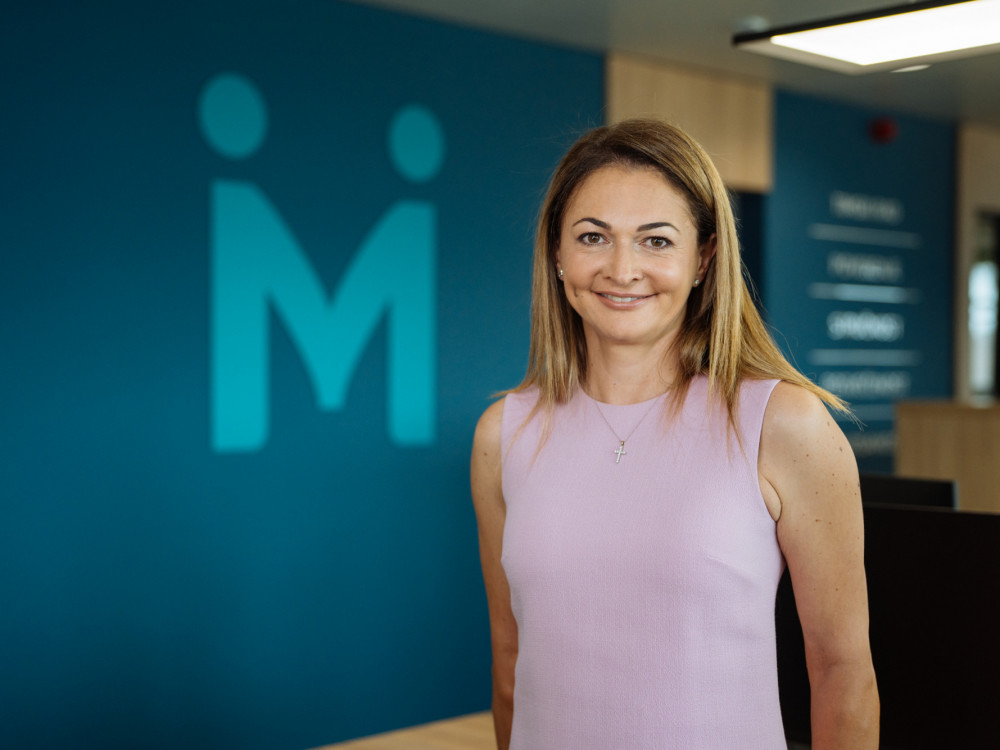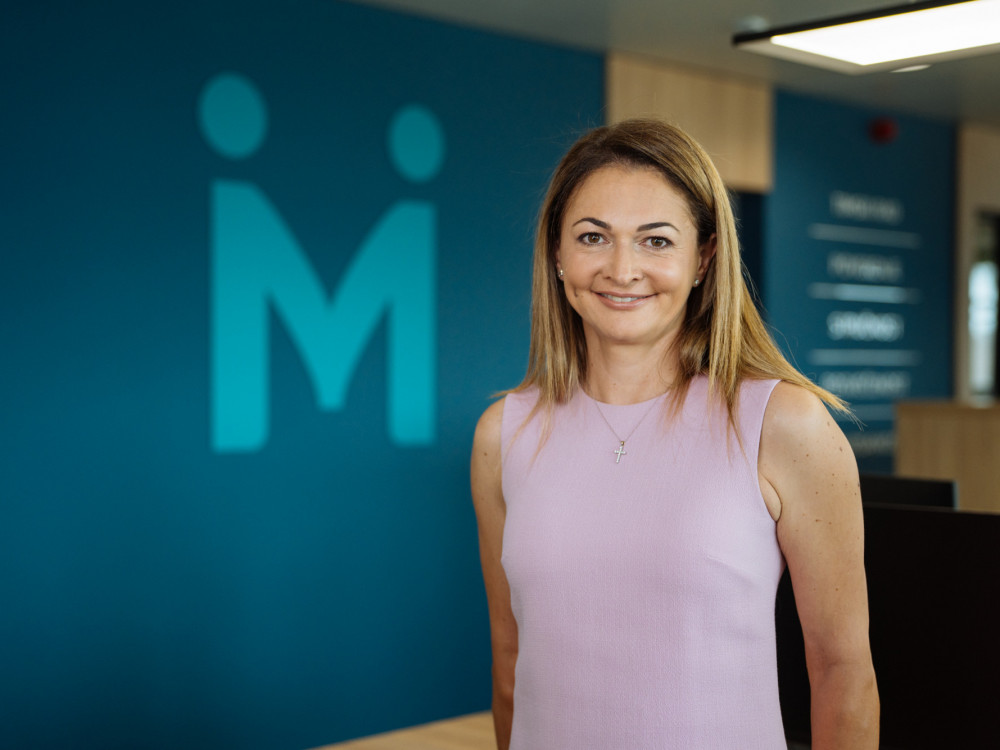In response to the growing demand for high-quality health services and the expanding private healthcare sector, MediGroup has adopted a business strategy for 2030. This strategy focuses on four key pillars: improving the patient experience, achieving medical excellence, prioritizing employee welfare, and integrating innovative technologies. The strategy places particular emphasis on the development of an integrated healthcare system and its proactive adaptation to market needs, especially as the private health sector continues to expand.
MediGroup's CEO, Marijana Vasilesku, highlights that the institution's primary focus will be on preventive healthcare and innovation—areas that will contribute to the overall improvement of healthcare services across Serbia.
Q&A with MediGroup's CEO, Marijana Vasilesku
Q: You recently outlined a strategy for MediGroup through 2030. What are its key components?
The foundation of our strategy rests on four main elements: improving patient experience, achieving medical excellence, caring for our employees as well as supporting their development, and embracing new technologies and innovations. We currently serve over 1.5 million patients annually, and our goal is to maintain our leadership in the private healthcare sector. We aim to increase our market share from 18% to 20% by 2030.
To achieve this, we plan to expand the accessibility of our services and ensure the highest quality of care across Serbia. Our ambition is to be present in over 40 cities within the next six years. I believe that 2025 will be a critical year for these plans—our performance in the coming year will have a lasting impact and will further fuel our drive to meet our goals.
Q: Can you tell us more about your planned expansion and the challenges you foresee in the Serbian market?
In smaller cities across Serbia, the private healthcare sector primarily consists of small private practices. Our mission is to offer citizens a comprehensive service through an integrated healthcare system—ranging from accurate diagnostics and preventive screenings to top-tier treatment.
The recent period of inflation has led to a shift in consumer behavior, with people now making more careful decisions about their spending. However, healthcare remains a top priority, and we are seeing an increasing number of people opting for private healthcare services. In fact, the private healthcare sector continues to show double-digit annual growth, and the market is expected to reach nearly half a billion euros in value in 2024. Aware of these challenges, as well as the opportunities, we remain committed to making healthcare services as accessible as possible to a wider range of patients, while maintaining the highest quality standards and building long-term trust. We are constantly listening to the needs and carefully analyze market trends, which allows us to strategically plan the expansion of the number of our institutions and increase the capacity of our existing ones.
Q: What differentiates MediGroup from the competition in such a dynamic market?
As an integrated private healthcare system with professional management, a strong corporate culture, and a nationwide presence, we are committed to improving and transforming our business. We focus on building more efficient teams and enhancing automation. By implementing clear procedures, we empower our teams to concentrate on core tasks and deliver the best possible healthcare experience to our patients. An inseparable part of this transformation are ESG principles, which will be one of our priorities in the upcoming period. Accordingly, one of our main goals is clear - to create value for everyone: our patients, our employees and the entire community.
Prevention is at the heart of our approach. This is why we developed unique health packages that offer a wide range of diagnostic tests and laboratory analyses. Modeled after our partner’s system, Regina Maria in Romania, these packages are specifically designed to provide comprehensive healthcare for employees, with a strong focus on prevention. They include a wide range of examinations and laboratory analyses, enabling adequate health care and early detection of any changes. The key advantages are flexibility and saving time scheduling health services and above all, going to a preventive examination without a doctor's prior referral. At the same time, these health packages allow all our patients and users access to the most modern medical equipment and diagnostic procedures.
Q: Who do you see as the most important partners for MediGroup moving forward?
We are observing rising demand for voluntary private health plans, driven by employers seeking to offer diverse benefits and employees expecting such services. This directly contributes to the growth of private healthcare services. Collaboration with insurance companies is, and will remain, a strategic priority for any private healthcare system.
We plan to expand these partnerships and explore new models to offer healthcare services that are tailored to the individual needs of our patients. In the years ahead, we will continue to engage in dialogue and collaboration with the public healthcare sector to further develop healthcare in Serbia.
Q: How do you estimate that global trends and technological advancements will shape the future of private healthcare institutions?
Globally, several key trends are shaping the future of private healthcare. First of all, there is a growing demand for healthcare services, driven by an aging population, the rise in chronic diseases, and increasing awareness about the importance of health and preventive screenings. In addition to this, technological advances are significantly transforming the way health care is delivered, including the integration of telemedicine and artificial intelligence, thereby improving the efficiency and accessibility of healthcare services.
Furthermore, there is an increasing focus on personalized treatment plans and improving the patient experience. Market trends require private healthcare systems to be proactive and adaptive. We are also aware of the fact that patients are increasingly looking for options abroad, desiring an affordable and high-quality service. One of our objectives is to integrate AI (artificial intelligence) to support our medical staff. So that they can focus on the most important factor – caring for our patients. By combining human expertise with AI capabilities, we can enhance the efficiency and quality of the services we provide. These trends highlight that private healthcare systems must be proactive, and they signal that private healthcare is on the cusp of significant change. It is crucial that we remain ready to adapt and innovate.













.png)